The Blue Diamond - January 2025

CONTENTS AT A GLANCE:
- Introduction
- ACM's Commitment to Open Access
- Open Access Implications for ACM Authors
- Open Access Implications for ACM Digital Library Users
- ACM Open Progress
- Update to Inappropriate Content Policy
- Welcome to New Staff
- Ethics & Plagiarism Update
- Peer Reviewer Training and Certification Course Launched
- ICPS Begins Transition to Full Open Access
- ACM Publications Board Welcomes New Members
- ACM Journal Impact Factors Latest Release
- CACM Relaunched as Web-First Publication
- New ACM Journals Open for Submissions
- New Titles From ACM Books
- ACM Publications Welcome New Editors-in-Chief
Introduction
Welcome to the January 2025 Issue of the Blue Diamond newsletter! It has been quite a while since our last issue and there were many developments in 2024 to update the ACM Community on, including significant progress with ACM’s transition to 100% Open Access publication, updates to ACM’s Publications Policies related to the use of Generative AI in ACM Publications, first Impact Factors from Clarivate for the Proceedings of the ACM(PACM)Series of journals, the launch of several new ACM Journals, publication of new ACM Books titles, and much more.
As always, thank you in advance for reading this issue and please don’t hesitate to reach out with any questions you may have related to anything covered in this issue or more general questions related to ACM’s Publications program.
Sincerely,
Scott Delman, ACM Director of Publications
ACM's Commitment to Open Access
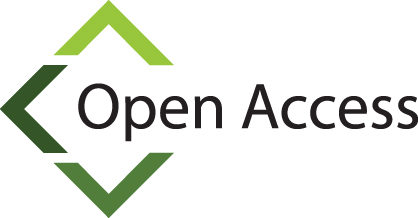
In June 2020, the ACM Council voted to transition ACM’s Publications program to a 100% Open Access publication model within five years provided the new model can be financially and editorially sustainable. Since that time, ACM staff has been working closely with thousands of universities, government research institutions, and corporations around the world to transition ACM Digital Library subscriptions over to ACM’s institutional open access model called ACM Open. This is a massive effort and is required for ACM’s Publications program to remain financially and editorially viable far into the future. For ACM, sustainability means two things: (1) generating enough income from Publications to cover current and future Publications-related expenses; and (2) maintaining or growing the current level of high-quality submissions to ACM Publication venues, including ACM Sponsored Conferences, ICPS Conferences, ACM Journals, and ACM Magazines.
On November 5, 2024, the ACM Council reaffirmed its intention to transition to 100% open access as from January 1, 2026 through a formal resolution and vote. This deadline is fast approaching and while ACM has made significant progress transitioning subscribing institutions over to the new Open Access model, there is still a long way to go before the entire program can be financially sustainable—and ACM has mitigated the risk that ACM authors unaffiliated with an ACM Open participating institution will be required to pay Article Processing Charges (APCs).
ACM is transitioning to a fully Open Access model because is the right thing to do and it is entirely consistent with ACM’s scientific and educational mission. There is clear evidence that ACM and non ACM Publications published without paywalls are downloaded, read, and cited significantly more than research articles locked up behind paywalls. More pragmatically, many of ACM’s authors are now or will be in 2026 subject to private and public funder mandates for Open Access that will require research grant recipients to: (1) retain copyright of their published articles; (2) assign Creative Commons or equivalent licenses to their published articles; and (3) publish their articles in Open Access venues.
Many scholarly publishers are transitioning parts of their publication programs to Open Access, but there are very few that have chosen to go “all in” on Open Access in the way ACM has committed to. As a non-profit Society Publisher, if ACM can transition to an OA model without negatively impacting the quality and reputation of its publications and while covering its publications expenses over the long-term, then this is what ACM is committed to doing.
ACM will become a 100% Open Access Publisher on January 1, 2026 and we urgent all those institutions whose faculty and students publish with ACM to reach out to ACM staff to discuss transitioning to ACM Open as soon as possible. We also urge all ACM authors to contact their department heads and library representatives to request that they initiate discussions about the transition to ACM Open as soon as possible.
Open Access Implications for ACM Authors
After the transition to Open Access, all articles published by ACM will be free to read and download in the ACM Digital Library (DL). If your institution has joined ACM Open, there will be no cost to you as an author. But for authors from institutions not covered by ACM Open agreements there will be an Article Processing Charge for papers to cover the costs of publication and hosting in the ACM Digital Library. These costs are significantly lower than most other publishers charge for APCs, but for some authors these fees may present a financial challenge.
For authors from developing countries where the financial burden is extreme, ACM has already put in place a robust automatic APC discount and waiver program to alleviate the burden of paying APCs. But for authors in developed countries where paying an APC is still a challenge and genuine financial need exists, ACM is developing an APC transition plan to help alleviate some of that burden in the initial years of the transition. The details of this plan will be finalized and announced in early 2025.
The transition to 100% Open Access publication has already begun and will continue over the next year in phases, as follows:
● As from January 1, 2024, ACM has already started requiring some International Conference Proceedings Series (ICPS) conferences to publish articles on a fully Open Access basis. Exceptions were granted for those conferences that already issued Calls for Papers prior to January 1, 2024. ACM in cooperation conferences published in ICPS fall into this category.
● As from January 1, 2025, all remaining ICPS conferences that did not transition in 2024 will transition to full Open Access in 2025, including in cooperation conferences not sponsored by ACM. All 2025 ICPS conferences should include specific language on their conference websites, calls for papers, and instructions for authors, so there is no confusion about the requirements of publishing with ACM in 2025 and beyond.
● As from January 1, 2026, all ACM Publications, including ACM Sponsored Conferences, Journals, and Magazines will transition to 100% Open Access Publication. This includes the Technical Symposium, ITiCSE, etc. For the 2026 ACM Sponsored Conferences, papers that are submitted in 2025 will be subject to the new requirements.
For those concerned about the cost of APCs, there are some important things to note: First, not every publication is subject to an APC. For example, abstracts, editorials, invited talks, practice oriented papers, etc. are exempt, even though all papers published by ACM will be free to read as from January 1, 2026. Only those article types categorized as APC-eligible will require an APC or be affiliated with an ACM Open institution. Second, whether a paper is considered part of ACM Open or requires an APC is based on the institutional affiliation of the corresponding author. If the corresponding author is from an institution with an agreement with ACM, no APC will be requested by ACM. Please note that the corresponding author does not need to be the first author of a publication. During the publication process, any of the named co-authors on a paper can be named as the corresponding author and ACM offers the opportunity to change the corresponding author up until ACM’s eRights process is completed, so before completing the eRights process, the corresponding author should check to see if any of their co-authors is affiliated with an ACM Open institution. Institutions are transitioning to the ACM Open model nearly every day, so ACM suggests checking the publicly available list before completing the eRights process.
For corresponding authored papers not affiliated with an ACM Open institution, the next step is to check if the corresponding author’s country of origin is one of the countries eligible for an automatic economic waiver. Corresponding authors from low-income countries, as defined by the World Bank List of Economies, will receive a full APC waiver. Authors from lower middle-income countries, as defined by the World Bank List of Economies, will receive a 50% discount off Member or Non-Member APC prices (i.e., both the member and country discount can be applied). Please note that it is less expensive to join ACM as a student or professional Member and receive the Member pricing than to pay the full list price APC.
If none of the criteria applies to the corresponding author, it is still possible to request a waiver directly from ACM, however granting discretionary waivers is the exception, not the rule, so please do not request a waiver without a compelling reason. As a general rule, graduate students from upper-middle-income or high-income countries that are affiliated with computer science or engineering departments from large research institutions and are co-authoring their papers with faculty members at those institutions are unlikely to receive waivers. ACM is expecting to provide automatic and discretionary waivers for approximately 5-10% of papers ACM publishes each year. If the waiver request cannot be accepted, the author(s) will have to pay the APC. ACM is also expecting that 70% of all papers published in 2026 will be affiliated with ACM Open institutions, and will not require APC payments from authors, so APCs are the exception and not the rule. This percentage will vary slightly based on the individual conference.
Nevertheless, we understand that some community members will be affected by this new model and have to pay an APC. For example, a preliminary study from ACM estimates that close to 20% of the Technical Symposium articles from 2024 would have to pay the APC if the policy started today. This number might be significantly lower, in fact, since only the first authors were considered and other authors may have been eligible for a waiver. We are closely monitoring the situation, including getting a more reliable measure of the number of articles actually impacted by ACM Open and potential actions to mitigate its effects on members of our community. If your institution is not already a member, reach out to your library (and perhaps your computer science department) to see about interest in an institutional ACM Open membership. The cost of institutional membership is divided into tiers based on institutional article output.
Open Access Implications for ACM Digital Library Users
Another important aspect of the transition to Open Access at the end of 2025 is the development of a “freemium” platform strategy for the ACM Digital Library. Over the years, ACM has invested heavily into developing the DL into a research and discovery tool that combines the full-text database of approximately 770,000 articles published by ACM and an index of over 3,800,000 non-ACM records, including abstracts, artifacts, and metadata. For many years, these two databases have operated seamlessly with access to both provided through a single ACM Digital Library subscription and user interface.
As ACM prepares to remove the paywall for all full-text articles in the ACM Digital Library at the end of 2025, the decision was made to split the ACM Digital Library into two separate databases and provide access to each database based on the authentication rights of the user. All full-text articles published by ACM back to 1951 will be made freely available in a publicly accessible version of the ACM Digital Library and will include full-text articles, abstracts, and research artifacts for the published articles. This “basic” version of the ACM DL will provide search and browse functionality and the ability to share content and export references. This version fulfills all of the requirements from the hundreds of public and private research funders around the world that fund research published by ACM and will not require a license to access the articles.
For researchers using the ACM Digital Library as a research and discovery tool, which is how most users use the ACM DL today, ACM will launch a more robust “premium” version of the current ACM Digital Library that will include all ACM published articles and artifacts that will be in the basic version of the DL plus all of the features and functionality of the current DL with a suite of additional features being added over the next few years, including AI tools for language translation, content recommendations, topic collections, enhanced conference data and metadata, thousands of videos and animations, advanced search, the curated index of 3.8M records from non-ACM publishers, and a list of additional features and functionality to assist DL users conduct research.
At the end of 2025, individual ACM Members subscribing to the current ACM DL will be automatically transitioned to the premium version of the ACM DL, and all users affiliated with ACM Open participating institutions will be automatically transitioned to the “premium” version of the ACM DL. Institutions unable to transition to ACM Open at the end of 2025, will have the option of maintaining their premium DL platform access by continuing to subscribe at their current pricing. Institutions participating in ACM Open will have the added benefit of funding their affiliated corresponding authors’ Open Access publication without any author-paid APCs, while corresponding authors affiliated with institutions subscribing to the “premium” version of the ACM DL will still have to pay APCs when publishing with ACM.
This dual platform strategy will enable ACM to become a fully Open Access Publisher and at the same time enable ACM to invest heavily in the ACM Digital Library platform and continue developing the ACM Digital Library into the industry leading search and discovery tool for the computing and technology market.
ACM Open Progress
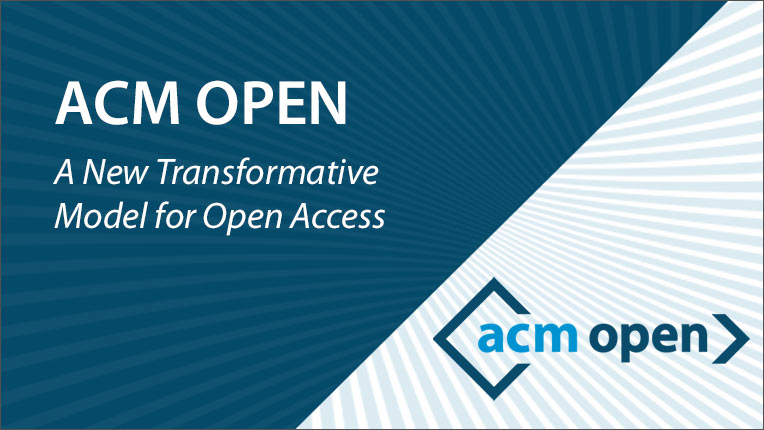
As of December 2024, approximately 1,650+ institutions are now participating in ACM Open and hundreds of additional institutions are expected to join in 2025.
Over the past year, the number of institutions that joined ACM Open more than doubled, and as we get closer to the 2026 deadline the number of institutions transitioning appears to be accelerating with an increasing number of large, medium, and small universities joining the program. In total, we expect approximately 2,000 universities, government research institutions, and corporations will be actively participating in the new program by 2026 out of the approximately 2,500 institutions that have historically subscribed to the ACM Digital Library.
Currently, ACM Open participating institutions represent between 60-65% of the 30,000 research articles ACM publishes each annually and it is expected that approximately 70% of research articles on a going forward basis will be covered by these institutional agreements by the end of 2025.
Update to Inappropriate Content Policy
ACM has an updated Inappropriate Content Policy addressing a range of pressing issues. Please familiarize yourself with the new policy and the associated list of Frequently Asked Questions.
While acknowledging the subjective nature of what constitutes indecency, obscenity, or bad taste, ACM regards inappropriate content as material—images, video, audio, or text— that uses degrading, derisive, derogatory, exploitative, harmful, hate-based, misogynistic, obscene, profane, racist, sexist, sexually explicit or violent text, pictures, examples, and/or illustrations in a way that is likely to cause offense or harm. Furthermore, content contained in an ACM Publication should be relevant to the Work and not be gratuitous or completely unrelated to the subject matter of the Work. This may include political speech.
ACM recognizes that these matters are often subjective in nature, and that the use of possibly inappropriate material should be judged both in the context of the Work itself and in terms of the potential for such material to be considered inappropriate on a standalone basis. It may well be that the use of a particular instance of material is entirely appropriate when judged in the context of the Work in which it is presented, just as the opposite may be true.
The list of Frequently Asked Questions includes a range of examples of the type of material that would be acceptable and not acceptable. These examples cover political speech; profanity; harmful research; research related to politics or politically charged issues; naming of systems and technologies; and racist or misogynistic content.
Welcome to New Staff
Kevin Ocampo is the Senior Account Manager at ACM. He joined ACM after working as a key account manager at Ingram Content Group. Prior to that, Ocampo held account management positions at Springer Nature and JSTOR. With over six years of experience in academic publishing, he has successfully built relationships with librarians and consortia internationally.
Steve Rutberg is the Digital Library and Advertising Sales Director at ACM. He oversees sales of the ACM Digital Library and the transition of customers to ACM Open. He is also responsible for ACM Open marketing and advertising sales for our various publications and Career Center. Prior to joining ACM, Rutberg held senior level sales and marketing positions at McGraw-Hill, Pearson, Taylor and Francis, Wolters Kluwe, and top tier publishing technology companies including Highwire Press.
Ethics & Plagiarism Update

The Ethics & Plagiarism (E&P) Committee of the ACM Publications Board is charged with investigating claims of ACM Publications Policy violations and collaborating with Publications Board leadership and Headquarters Staff to ensure that ACM’s policies and processes support the highest level of research integrity and publishing excellence.
Key recent policy updates on which the Committee advised include the ACM Policy on Authorship, the ACM Peer Review Policy, and, most recently, the revised ACM Inappropriate Content Policy (more on this elsewhere in this edition of the Blue Diamond). Each of these updated policies has its own new list of Frequently Asked Questions (Authorship Policy FAQ, Peer Review Policy FAQ, and Inappropriate Content Policy FAQ).
The Committee also provided key guidance on the development of ACM’s new Peer Reviewer Training and Certification program, including the Case Studies for Peer Reviewers which address some of the tricker scenarios ACM reviewers encounter (more on this program in a dedicated section of this edition of the Blue Diamond).
In FY24 (July 2023 - June 2024), the Committee received an all-time high of 63 new complaints (up from the previous record of 58 new complaints filed in FY22). Of those 63 complaints, 48 were for authorship violations including plagiarism; seven were for peer review violations; four for falsification of research and research midsconduct; three for conflicts of interest; and one for coercion, abuse, harrassment, and retaliation. As the number and complexity of cases increase, the Committee has been working to put new systems and procedures in place to support its cricial work safeguarding the integrity of ACM publications.
Peer Reviewer Training and Certification Course Launched
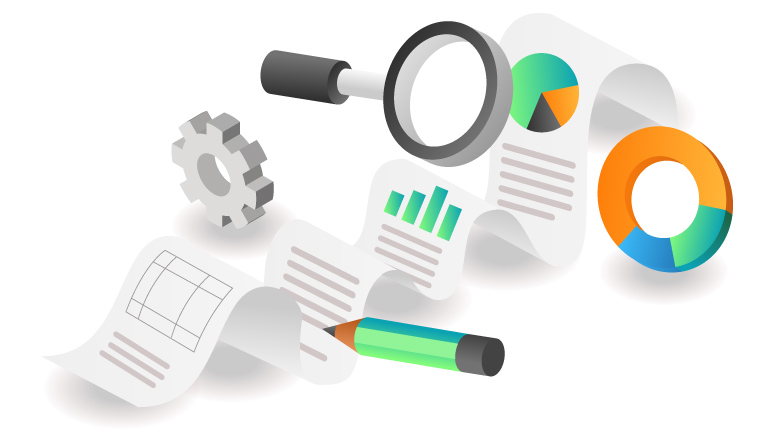
The publications team has launched a Peer Reviewer Training and Certification course hosted on the newly created ACM Peer Reviewer Gateway. The course aims to educate current and prospective reviewers on the principles and fundamentals of peer review and relevant ACM policies, and it offers concrete guidance on writing and submitting a review in a constructive and meaningful way.
ACM’s peer reviewers embody an integral role within the publications program as their expertise contributes to ensuring that sound and high-quality research is published at ACM. The certification component of the course is a means to acknowledge and incentivize this volunteer role, and can serve as an identifier to aid potential growth and progression within the community. Participants who successfully complete the course and certification exam will become an ACM Certified Reviewer. These reviewers can indicate the publications best suited to their interests. For participating ACM journals, the certified reviewer will be added as such to the reviewer pool in the respective peer review website(s) and will be easily findable by journal leadership.
The course (especially the Case Studies) offers valuable insights for seasoned reviewers as well as those new to the process, and we encourage all members of the ACM community to make use of this valuable new resource.
ICPS Begins Transition to Full Open Access
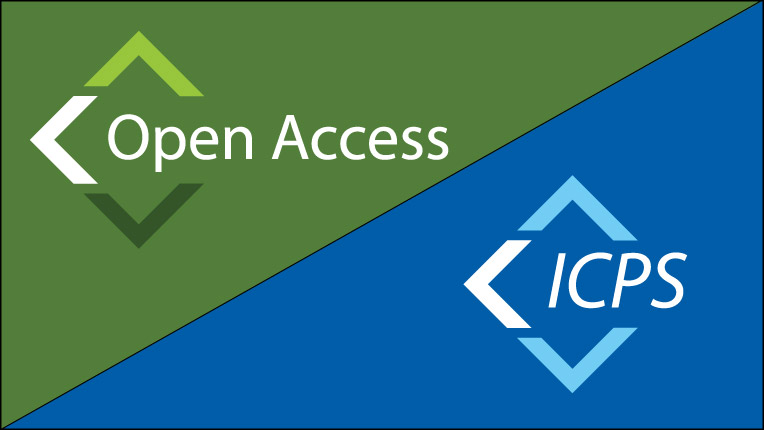
ACM is at an important point in its journey toward Open Access (OA) publication. In January 2024, ACM began transitioning ICPS conferences to a 100% Open Access model. During the year, an increasing number of ICPS conferences adopted the new OA model, while many remained in an optional OA model. As of January 1, 2025, all ICPS conferences publishing their conference proceedings with ACM will be required to transition to 100% Open Access, without exception. This transition will have implications for ICPS conference authors.
Because ACM is breaking new ground in mandating open access publication for conference proceedings, the requirement for some authors to pay an article processing charge (APC) can come as an unexpected and unwelcome complication. Those who are not affiliated with ACM Open institutions may need to take additional steps with their co-authors, institutions, or funders to secure the necessary financial support. It is therefore of critical importance to provide early guidance to authors on what to expect from the new model, and we continue to work with conference organizers to optimize and clarify this messaging.
Although we have made good progress in transitioning institutions to ACM Open (more than 1,600 institutions so far), there are still significant gaps in countries such as India and China that host many ICPS conferences. This can create real challenges for authors who do not have funding to support APC payments. We are addressing this challenge in several different ways:
- The ACM institutional sales team continues to add new institutions to the ACM program. A recent addition is the Couperin consortium in France, joining other notable members of the program such as Carnegie Mellon University, MIT, Tsinghua University, and the University of Oxford.
- For those ICPS authors who are still required to pay an APC, we are exploring ways to streamline the payment process and, where possible, to reduce the financial burden on individual authors.
- We have an established policy of granting APC waivers to those in real financial need, while maintaining a prudent approach to the sustainability of the OA model.
ACM’s initiative to transition to fully open access publication came from the community, and ongoing community support is essential as we continue to expand the global reach of the ACM Open program. Here are some simple steps you can take to help us:
- Do you know if your institution is a member of ACM Open? If not, you can view the list of participating institutions here.
- If your institution has not yet signed up for the program, please consider writing to your department head and your librarian to urge them to join. Please write to [email protected] if you would like us to provide you with a standard letter or other supporting information to help you with this.
Full details of the new ICPS model, including a breakdown of applicable APCs, may be found here. Email [email protected] for further information or questions about ICPS.
ACM Publications Board Welcomes New Members
The ACM Publications Board is delighted to welcome the following new members:
Rick Anderson is University Librarian at Brigham Young University. He is past president of NASIG and the Society for Scholarly Publishing (SSP), a frequent contributor to SSP’s widely read blog The Scholarly Kitchen, and serves on the boards of multiple organizations including biorXiv, Taylor & Francis, JSTOR, and Oxford University Press.
Mauro Pezzè is a Professor of Software Engineering at the Università della Svizzera Italiana, at the Università di Milano Bicocca, and at Constructor Institute of Technology. Pezzè served as Editor-in-Chief of ACM Transactions on Software Engineering and Methodology (TOSEM) from 2019-2024. He joins Adelinde Uhrmacher (University of Rostock) as Co-Chair of the Assessment & Search Committee.
Francesca Rossi is an IBM Fellow and the IBM AI Ethics Global Leader. After 25 years in academia, she is now based at the T.J. Watson IBM Research Lab, New York, USA, where she leads research projects and co-chairs the IBM AI Ethics board. She is a fellow of both AAAI and EurAI, and she has been the president of IJCAI. She is on the steering committee of the AAAI/ACM Conference on AI, Ethics, and Society, and chaired the conference in 2023. She is also the current President of AAAI (2022-2025).
Stuart Taylor has more than 35 years of publishing experience. He retired from his role as Publishing Director at the Royal Society in 2023. Stuart has served on the boards of many leading publishing and publishing-adjacent organizations, including Crossref, OASPA, Europe PMC and the Society Publishers' Coalition (SocPC). In 2019 he co-founded the Society Publishers' Coalition.
John West is Director of Leadership Computing at the Texas Advanced Computing Center (TACC). Prior to joining TACC, West was Director of the High Performance Computing Modernization Program (HPCMP) at the United States Department of Defense. He also served as ACM Secretary/Treasurer from 2022-2024 and Co-Chair of ACM’s Diversity, Equity, and Inclusion Council 2019-2021.
Min Zhang is a Professor in the Department of Computer Science and Technology of Tsinghua University. Zhang has served as Editor-in-Chief of ACM Transactions on Information Systems (TOIS) since August 2020. Her research interests are Web Search, Recommender Systems, User Understanding and Modeling.
ACM Journal Impact Factors Latest Release
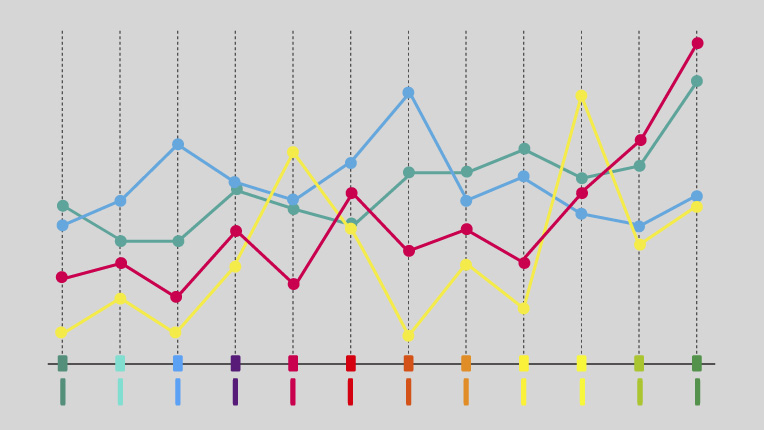
The publications of ACM, the Association for Computing Machinery, had an impressive showing in the newest Journal Citation Reports (JCR) from Clarivate Analytics. Standout journal ACM Computing Surveys (CSUR) continued its impressive ascent, receiving an impact factor of 23.8, up from 16.6 the year before, and placing it first out of the 143 journals in the Computer Science, Theory & Methods category. Flagship journal Communications of the ACM (CACM) boasted continued strong performance, with an impact factor of 11.1, placing it first in the Computer Science, Hardware & Architecture category for the second year in a row; third of 131 titles in the Computer Science, Software Engineering category; and sixth of 143 journals in the Computer Science, Theory & Methods category.
Numerous ACM journals posted their highest impact factors to date, among them ACM Transactions on Graphics (TOG) at 7.8, placing it fifth of 131 journals in the Computer Science, Software Engineering category. ACM Transactions on Software Engineering and Methodology (TOSEM) also outdid all of its previous JCR performances, receiving an impact factor of 6.6, positioning it eighth of 131 titles in the Computer Science, Software Engineering category. Other ACM journals receiving their highest impact factors to date include ACM Transactions on Multimedia Computing Communications and Applications (TOMM) at 5.2, placing it in the first quartile in all three of its categories; ACM Transactions on Computer-Human Interaction (TOCHI), with a record 4.8 impact factor and rankings of fifth of 32 titles in the Computer Science, Cybernetics category and 46 of 249 in the Computer Science, Information Systems category; ACM Transactions on Interactive Intelligent Systems (TiiS) at 3.6, placing it 72 of 197 in Computer Science, Artificial Intelligence; ACM Transactions on Internet of Things (TIOT) at 3.5 and 45 of 119 in Telecommunications, 83 of 249 in Computer Science, Information Systems, and 120 of 352 in Engineering, Electrical & Electronic; ACM Transactions on Computing Education (TOCE) at 3.2, placing it 15 of 85 titles in the Education, Scientific Disciplines category; ACM Transactions on Reconfigurable Technology and Systems (TRETS) at 3.1 and 19 of 59 in Computer Science, Hardware & Architecture; and ACM Transactions on Privacy and Security (TOPS) at 3.0 and 95 of 249 in Computer Science, Information Systems.
ACM Transactions on Quantum Computing (TQC), which received its first impact factor in the latest release, had an impressive showing, with an impact factor of 3.7, placing it 25 of 143 (first quartile) in Computer Science, Theory & Methods and 12 of 26 (second quartile) in Quantum Science & Technology.
Other notable performances include ACM Transactions on Intelligent Systems and Technology (TIST), with an impact factor of 7.2, placing it 18 of 249 titles in the Computer Science, Information Systems category and 27 of 197 in the Computer Science, Artificial Intelligence category; ACM Transactions on Information Systems (TOIS) at 5.4 and ranking 37 of 249 journals in the Computer Science, Information Systems category; ACM Transactions on Human-Robot Interaction (THRI) at 4.2 and 14 of 46 titles in the Robotics category; ACM Transactions on Knowledge Discovery from Data (TKDD) at 4.0, placing it in the first quartile of both of its categories; ACM Transactions on Internet Technology (TOIT) at 3.9, placing it 24 of 131 in Computer Science, Software Engineering and 66 of 249 in the Computer Science, Information Systems; ACM Transactions on Sensor Networks (TOSN) at 3.9 and 38 of 119 in Telecommunications and 66 of 249 in Computer Science, Information Systems; Proceedings of the ACM on Interactive Mobile Wearable and Ubiquitous Technologies (IMWUT) at 3.6, placing it 44 of 119 in Telecommunications, 78 of 249 in Computer Science, Information Systems, and 118 of 352 in Engineering, Electrical & Electronic; and ACM Transactions on Mathematical Software (TOMS) at 2.7 and 25 of 331 in Mathematics, Applied and 44 of 131 in Computer Science, Software Engineering.
CACM Relaunched as Web-First Publication

ACM has relaunched Communications of the ACM (CACM) as a web-first publication, accessible to everyone without charge. First published in 1958, CACM is one of the most respected information technology magazines. Providing news, expert commentary, and peer-reviewed research, CACM straddles the lines between a popular science magazine, a technical resource for industry professionals, and a scientific journal. CACM regularly receives very high “impact factors”—a metric used in academic publishing to gauge a publication’s influence within its designated field.
The web-first model will allow ACM to publish articles more rapidly than before so that readers can keep abreast of the lightning-fast changes in the computing field. At the same time, researchers will be able to reference and cite valuable information and research from CACM articles more quickly. The reengineered website will also allow CACM authors to publish longer articles and make greater use of video and other multimedia content. And CACM will be even more user-friendly with improved search capabilities, more interactivity, simplified categorization of articles in new sections, daily content updates, and a modern, spacious design that lends itself to all devices.
In relaunching Communications of the ACM as an open access publication, all legacy and future CACM articles will be freely available to and accessible by everyone on the CACM website and in the ACM Digital Library. By opening CACM to the world, ACM hopes to increase engagement with the broader computer science community and encourage computing professionals and students everywhere to discover its rich resources and benefits. This will also benefit CACM authors by expanding their readership to a larger and more diverse audience. The community’s continued support of ACM through membership and the ACM Open model is essential to keeping ACM and CACM strong.
New ACM Journals Open for Submissions
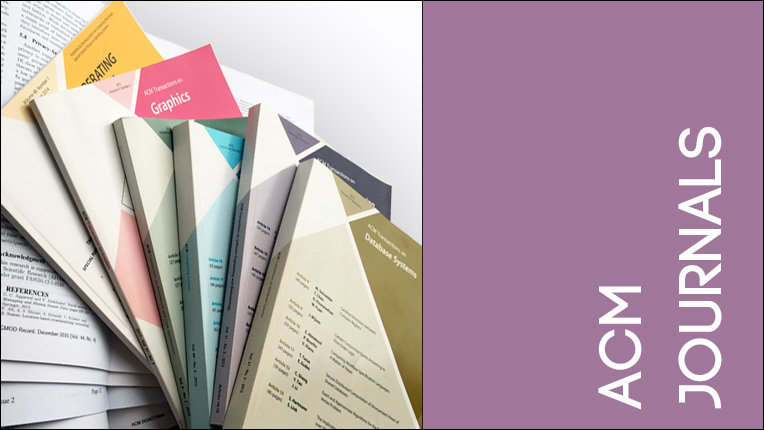
Proceedings of the ACM on Software Engineering (PACMSE) is a premier Gold Open Access journal that publishes top-quality, original research on all aspects of software engineering, from requirements elicitation to quality assessment and from design to maintenance, evolution, and deployment. The journal welcomes contributions on new methodologies, tools, theories, and models, as well as empirical studies and survey papers related to the wide spectrum of software engineering topics.
ACM Journal on Responsible Computing (JRC) publishes high-quality original research at the intersection of computing, ethics, information, law, policy, responsible innovation, and social responsibility from a wide range of convergent, interdisciplinary, multidisciplinary, and transdisciplinary perspectives. The journal welcomes papers using any or a combination of computational, conceptual, qualitative, quantitative, and other methods to make contributions to knowledge, methods, practice, and theory, broadly defined.
ACM Journal on Autonomous Transportation Systems (JATS) aims to cover the topics in design, analysis, and control of autonomous transportation systems. Expected topics of interest include, but are not limited to, Data Science in Autonomous Transportation Systems, Communication and Real-Time Control, Smart traffic Analysis, Public Transit Planning and Operation, Algorithm Design for Autonomous Transportation Systems, Mathematical Modelling of Traffic Flow, and more.
ACM/IMS Journal of Data Science (JDS) is a joint Gold Open Access journal of the Association of Computing Machinery (ACM) and the Institute of Mathematical Statistics (IMS), publishing high-impact research from all areas of data science, across foundations, applications and systems. The scope of the journal is multi-disciplinary and broad, spanning statistics, machine learning, computer systems, and the societal implications of data science.
New Titles From ACM Books
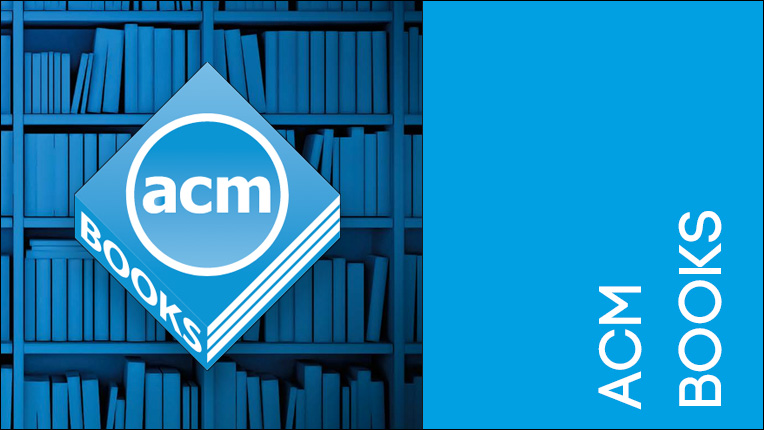
With ten new titles publishing in 2024, the ACM Books program continues in its mission to provide the community with high-quality monographs, advanced textbooks, and other scholarly works addressing the science, history, and social impact of computing.
Published titles:
- Omar Alonso and Ricardo Baeza-Yates (Eds.): Information Retrieval: Advanced Topics and Techniques
- Chuchu Fan: Formal Methods for Safe Autonomy
- Gloria Townsend (Ed.): Rendering History: The Women of ACM-W
- Brad Myers: Pick, Click, Flick! The Story of Interaction Techniques
- Ronald Baecker with Jonathan Grudin: Digital Dreams Have Become Nightmares: What We Must Do
- John Krumm (Ed.): Spatial Gems 2
Forthcoming titles:
- Aayush Jain: Indistinguishability Obfuscation from Well-Studied Assumptions
- Mark Wolf: Calculated Imagery: A History of Computer Graphics and Hollywood Cinema
- Boelie Elzen and Donald MacKenzie: The Seymour Cray Era of Supercomputers: From Fast Machines to Fast Codes
- Aurèle Barrière: Formal Verification of Just-in-time Compilation
All titles are available for purchase on the Digital Library at https://dl.acm.org/acmbooks. They may be accessed free of charge by members of institutions that have purchased the book collections, and at heavily discounted ratesby professional and student members of ACM.
ACM Publications Welcome New Editors-in-Chief
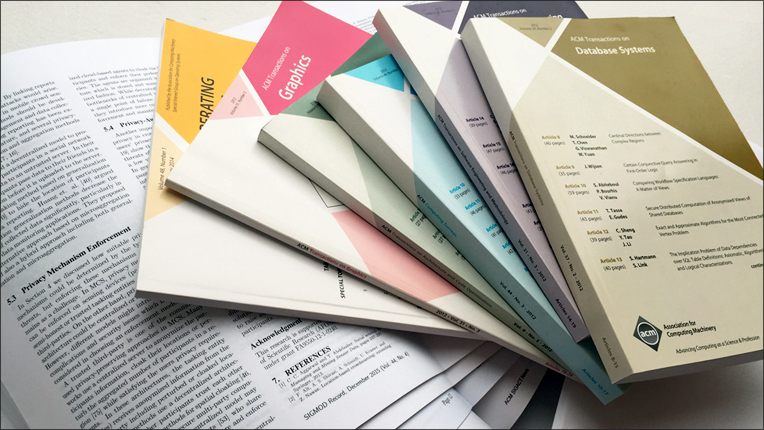
ACM Transactions on Software Engineering and Methodology (TOSEM) welcomes Abhik Roychoudhury as its new Editor-in-Chief for the term January 1, 2025 to December 31, 2027. Roychoudhury is a Provost's Chair Professor of Computer Science at the National University of Singapore (NUS).
ACM Transactions on Parallel Computing (TOPC) welcomes Martín Farach-Colton as new Editor-in-Chief, for the term November 1, 2024 to October 31, 2027. Farach-Colton is Computer Science and Engineering Department Chair and Leonard J. Shustek Professor of Computer Science at New York University.
ACM Transactions on Internet Technology (TOIT) welcomes Jaideep S. Vaidya as new Editor-in-Chief, for the term December 1, 2024 to November 30, 2027. Vaidya is a Distinguished Professor of Computer Information Systems at Rutgers University and Director of the Rutgers Institute for Data Science, Learning, and Applications.
ACM Transactions on Computing for Healthcare (HEALTH) welcomes Gang Zhou as its new EIC. Zhou is a Professor in the Department of Computer Science at the College of William & Mary. The appointment is from October 15, 2024 to October 14, 2027.
ACM / IMS Journal of Data Science (JDS) has reappointed Jelena Bradic (University of California at San Diego) and Stratos Idreos (Harvard University) as Co-Editors-in-Chief for a second term. They are joined by new Co-EiC Barbara Engelhardt (Stanford University) for the term of September 19, 2024 to May 31, 2027.
Digital Government: Research and Practice (DGOV) welcomes Luis Luna-Reyes (University at Albany – SUNY, USA) and Sehl Mellouli (Université Laval, Canada) as its new Editors-in-Chief. Their appointments are from September 1, 2024 until August 31, 2027.
ACM Transactions on Spatial Algorithms and Systems (TSAS) welcomes Mohamed Mokbel as its Editor-in-Chief. The appointment is from September 1, 2024 until August 31, 2027. Mokbel is Distinguished McKnight University Professor at the University of Minnesota.
ACM Transactions on Mathematical Software (TOMS) welcomes Hatem Ltaief and Piotr Luszczek as Co-Editors-in-Chief. The appointment is from September 1, 2024 until August 31, 2027. Ltaief is the Princial Research Scientist in the Extreme Computing Research CenterKing Abdullah University of Science and Technology. Luszczek is a Technical Staff Scientist at MIT Lincoln Lab.
ACM Transactions on Human-Robot Interaction (THRI) welcomes Iolanda Leite (KTH Royal Institute of Technology, Sweden) and James Young (University of Manitoba, Canada) as Co-Editors-in-Chief. Their appointments are from March 1, 2024 to February 28, 2027.
ACM Transactions on Computer Systems (TOCS) welcomes Sam H. Noh (Virginia Tech, USA) and Robert van Renesse (Cornell University, USA) as Co-Editors-in-Chief. Their appointments are from May 1, 2024 to April 30, 2027.
ACM Transactions on Internet of Things (TIOT) welcomes new Editor-in-Chief Mo Li (The Hong Kong University of Science and Technology) for a term starting May 15, 2024 and ending May 14, 2027.
PACM on Computer Graphics and Interactive Techniques (PACMCGIT) welcomes new Editor-in-Chief Michael Doggett (Lund University, Sweden), for a term starting May 15, 2024 and ending May 14, 2027.
ACM Transactions on Management Information Systems (TMIS) welcomes Heng Zu (University of Florida) as the new Editor-in-Chief for the term of May 15, 2024 to May 14, 2027.
PACM on Measurement and Analysis of Computing Systems (POMACS) welcomes John C.S. Lui (The Chinese University of Hong Kong) as the new Editor-in-Chief for the term of May 15, 2024 to May 14, 2027.
ACM Transactions on Autonomous and Adaptive Systems (TAAS) has named Rami Bahsoon as Editor-in-Chief, for the term January 15, 2024 to January 14, 2027. Bahsoon is a Reader in Software Engineering at The University of Birmingham (UK).
ACM Transactions on Knowledge Discovery from Data (TKDD) welcomes Jian Pei as Editor-in-Chief. The appointment is from February 1, 2024 to January 31, 2027. Pei is an ACM Fellow and Arthur S. Pearse Distinguished Professor of Computer Science at Duke University.
ACM Transactions on Design Automation of Electronic Systems (TODAES) welcomes Jiang Hu as its new Editor-in-Chief for the term of February 1, 2024 to January 31, 2027. Hu is a Professor of Electrical & Computer Engineering at Texas A & M University.
ACM Transactions on Privacy and Security (TOPS) welcomes Michael Waidner as its new Editor-in-Chief for the term of February 1, 2024 to January 31, 2027. Waidner is a Professor at ATHENE | TU Darmstadt | Fraunhofer SIT.
ACM Transactions on Sensor Networks (TOSN) welcomes Wen Hu as its new Editor-in-Chief. The appointment is from February 1, 2024 to January 31, 2027. Hu is a Professor in the School of Computer Science and Engineering at The University of New South Wales.